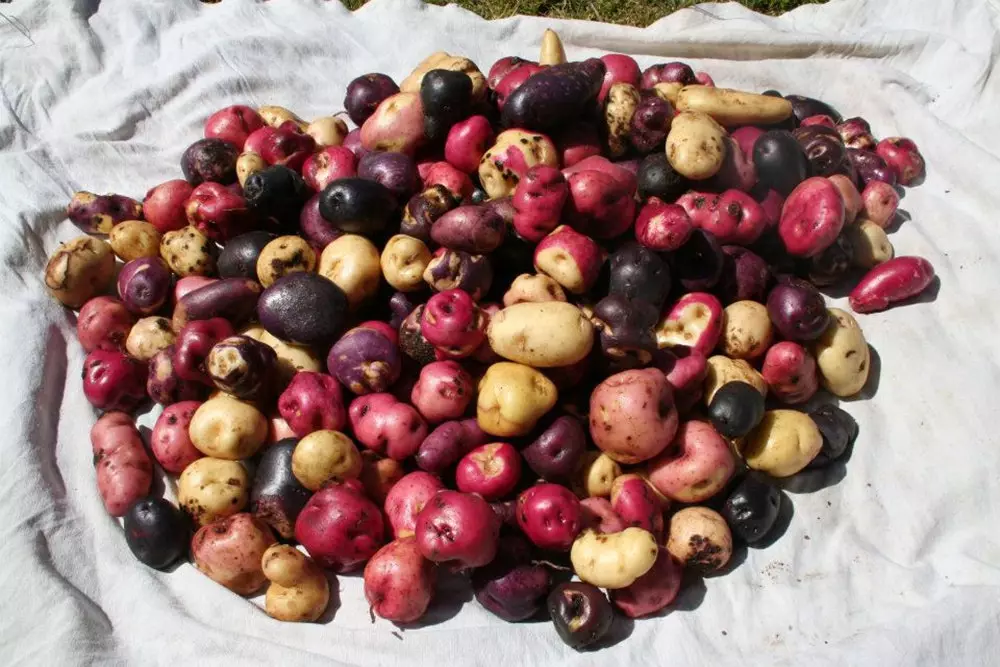
Variety of native potatoes of the Potato Park
The potato paradise exists and is between heaven and earth. More specifically in Peru, at 4,600 meters above sea level. The Potato Park It is a magical place in a safe place thanks to four indigenous communities of Quechua people , who watch over the future of sacred Valley in the Andean highlands.
In the Cusco province of decal the Inca empire built the wickerwork of a great civilization in the thirteenth century, and now 6,000 indigenous maintain their legacy by cultivating 1,300 varieties of potatoes with wonderful colors and shapes.
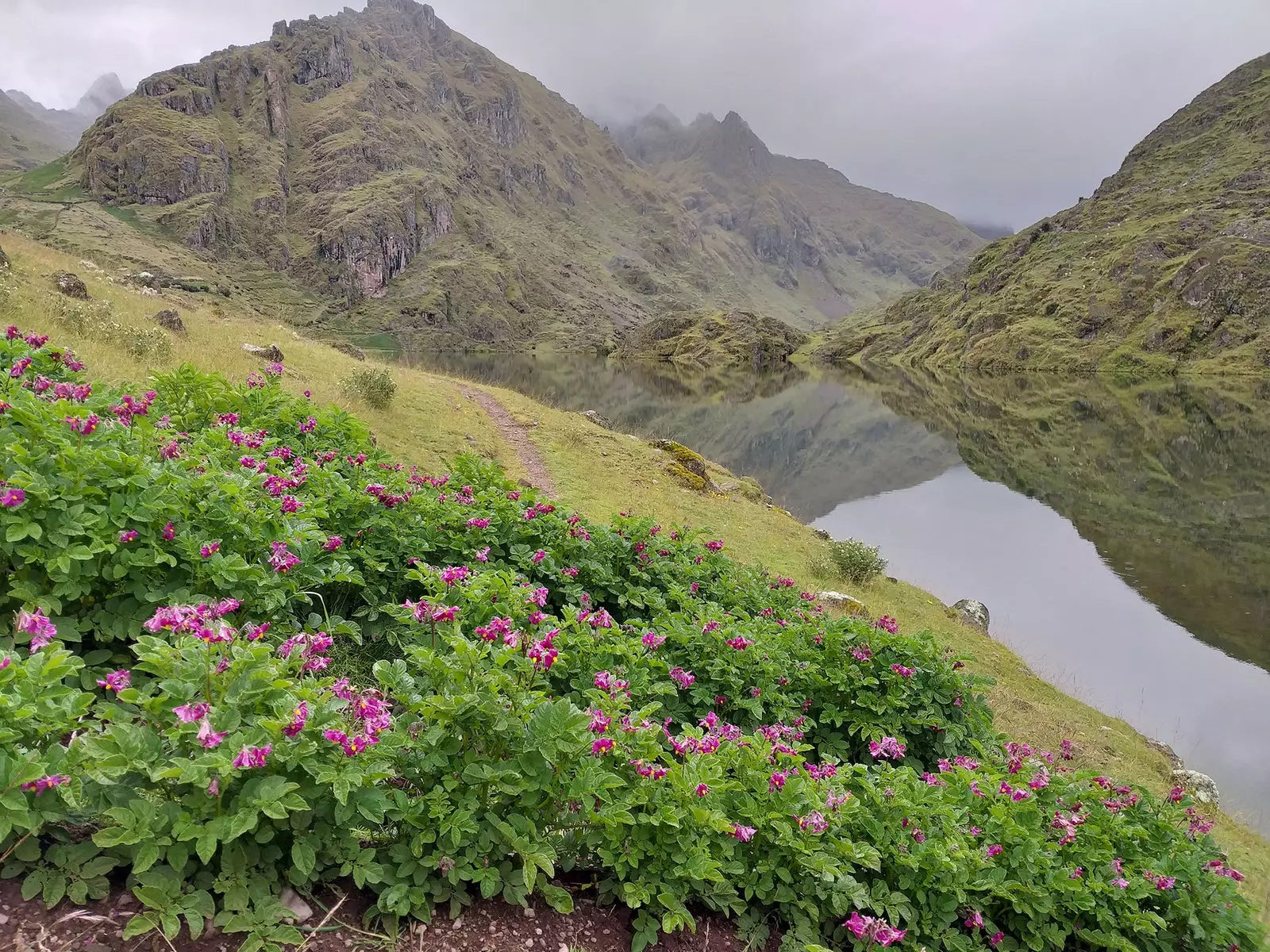
Here, at 4,600 meters above sea level, is the paradise of potatoes
“A crucial reason for understanding why the Potato Park is important is that indigenous food systems are critics for the food security, the eradication of hunger and care for the environment. Here the cultivation and harvesting techniques are resistant to climate change and support the biodiversity and the well-being of indigenous communities ”, says Tammy Stenner of the Andean Association for Conde Nast Traveler.
The food system that is promoted from the Parque de la Papa plays a essential paper in the conservation of the environment "because its people are deeply connected with the cultural and spiritual values of respect for nature. Everything that is done is related to the concept of Sumaq Kausay or Good Living , which reflects the local concept of sustainability, protection and conservation of the Mother Earth”.
It has always been said that no matter how stranger let it be one, you know instantly if you step Holy Land . That it is not necessary for anyone to announce it because it feels inside. Even tourists detect that special energy in these 7,238 hectares. It's as if time stood still cusco mountains . Of course, what stands out here is the preservation of a large number of tubers , but also vegetables Y local fruits, indigenous breeds either medicinal wild plants. That is why official recognition has not been long in coming and the peruvian state has decreed this place as the second zone of agrodiversity in the country.
The secret of so many natural benefits must be found in the wisdom of the quechua people and in one Prime location. The Pisac town, the tourist collection area is at 2,972 meters, but in areas of the park it reaches up to 4,600 meters. A height above sea level very beneficial for scientists to find answers to the climate emergency Yet the next food crisis generated by the rises in temperatures , the natural disasters and the drought.
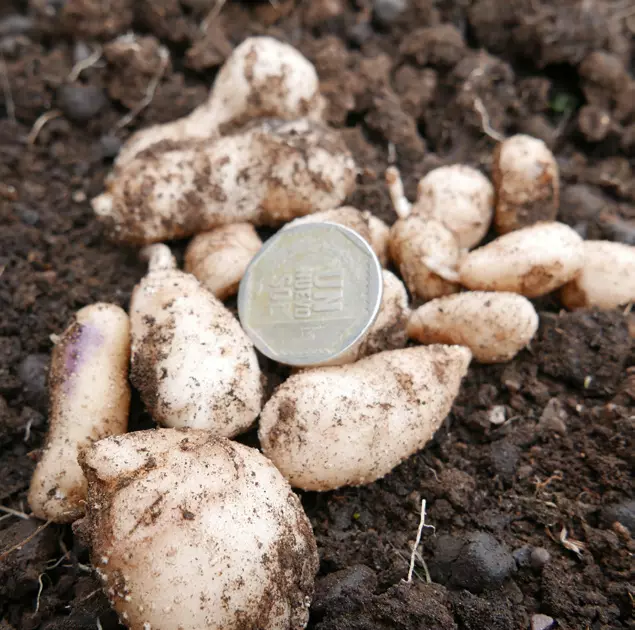
wild potatoes
"The global warming is creating impacts dramatic in The Andes. The glaciers of Peru have been reduced by 22%, which means a 12% reduction in water for the arid coastal region. The loss of water due to melting glaciers It is equivalent to the water consumed by Lima, the capital of Peru in 10 years. The melting of glaciers also increases the risk of landslides and the formation of overflowing lakes ”, they warn from The Indigenous Peoples' Biocultural Climate Change Assessment Initiative (IPCCA).
The objective was to find a food That adapt and endure the changing climates future. And it seems that they have found it in the Parque de la Papa.
All the attention is focused on a singular potato variety. The locals call her “Machu Papa” , a potato that it can grow where other foods die. A potato that is not afraid of extreme weather events that it also likes to call "daddy grandpa".
"The Machu Papa is the wild relative of the potato In the park there is 3 species of wild potatoes and these are responsible for the gene pool of local native potatoes, for the abundant diversity of varieties that offer a wide range of options for feeding, breeding and developing niche markets. The characteristics of the Machu Papa include the resistance to pests, diseases and extreme weather conditions such as drought or frost ”, they certify from Fundación Andes.
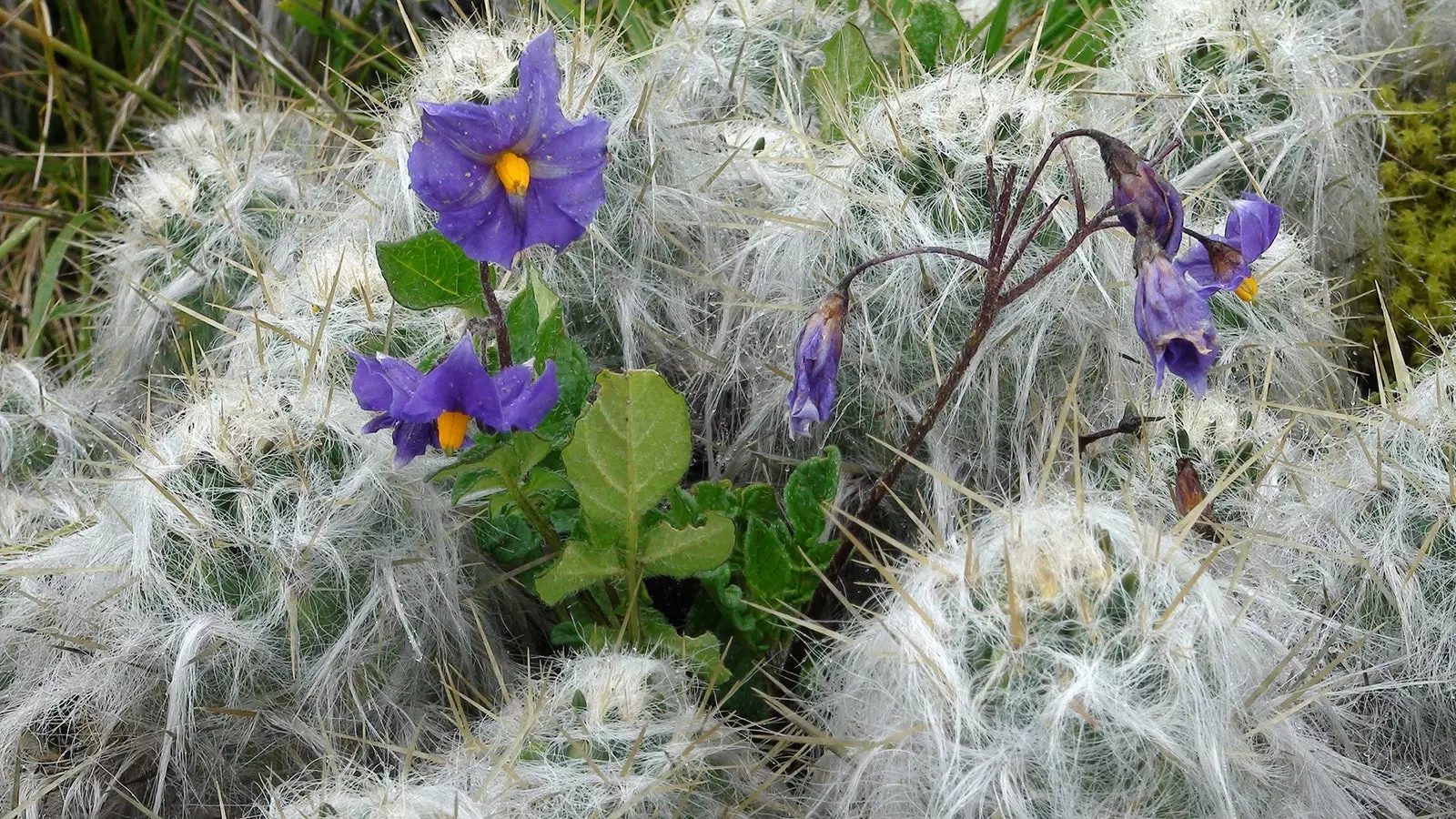
Flower of the Machu Papa
For hundreds of years, indigenous people have mixed domesticated potato varieties with wild varieties. What is new is that the researchers have copied the craft processes of the Quechua people to select the most resistant variety of potato. It is no coincidence that Peruvian researchers have sent seeds of the Machu Papa variety to the famous Global Seed Bank Svalbard in Norway. The logical step to preserve them for eternity in case of catastrophe.
This process of learning between science and belief with a happy ending moves away from the massive potato crops worldwide, which have endangered the survival of indigenous agriculture.
“The industrial cultivation of potatoes by large companies has brought with it overproduction and low prices. In addition, monoculture predisposes farmers to pest problems. Intensified production requires massive use of pesticides and fertilizers which** pollute water, kill soil biology, and erode biological and genetic diversity.** Industrial potatoes are genetically uniform, allowing pests to spread through fields with relatively little resistance.”
Quite the opposite of what happens in the potato park where there is no potato the same as the other and where the distinction of sacred food by the Inca Empire is recovered.
"Maybe humanity must not forget history infamous for the plagues that caused the famine in ireland during the decade of 1840 , when Irish farmers were forced to grow a single variety of potatoes. Like the fields during the Irish potato famine, modern monocultures are at risk of infection anytime".
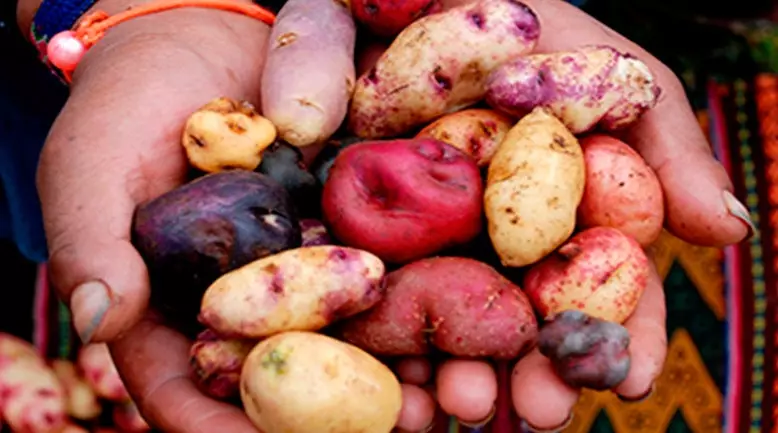
1,300 varieties of potatoes are grown in the Potato Park
